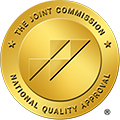- Withdrawal symptoms vary widely and can begin within hours of the last drink, requiring careful monitoring.
- Professional medical guidance is critical, especially during the first 72 hours to manage severe symptoms safely.
- Detox benefits include immediate improvements in physical health and mental clarity, with long-term gains like enhanced liver function and better relationships.
- Ongoing therapy and support groups are essential for sustaining recovery and preventing relapse.


What Is Alcohol Withdrawal?
Withdrawal symptoms can begin as early as two hours after the last drink, with a range of mild to severe effects. The severity largely depends on the drinking history, frequency, and individual health.
Symptoms of Alcohol Withdrawal
Early Symptoms (6-12 hours after last drink)
- Anxiety, shaking, sweating
- Nausea and vomiting
- Insomnia and fatigue
- Headache
Peak Symptoms (24-72 hours):
- Confusion and irritability
- Elevated heart rate and blood pressure
- Increased body temperature
- Hallucinations
Severe Symptoms (1 week and beyond):
- Delirium tremens (DTs), including severe agitation, fever, and seizures, typically occurring 3-10 days post-last drink
What to Expect in Outpatient Alcohol Detox
Assessment: Upon entering Georgia Sky, individuals undergo a comprehensive medical assessment to determine their level of alcohol dependency and any co-existing health issues. This assessment helps in creating a personalized detox plan.
Supervision: Our healthcare professionals monitor patient’s vital signs, withdrawal symptoms, and overall health around the clock, even when they are detoxing at home.
Medication Management: Medications may be administered to mitigate withdrawal symptoms, reduce cravings, and treat any concurrent medical conditions.
Support Services: Additional support services we offer include nutritional support, counseling, relapse prevention and preparation for ongoing addiction treatment.


Benefits of Alcohol Detox
- Physical Health Improvements: Detox can quickly normalize vital signs like blood pressure, pulse, and temperature, and reduce risks of gastrointestinal issues.
- Mental Clarity: Cognitive functions such as memory and concentration improve, enhancing engagement in therapy and treatment.
- Emotional Stability: Mood stabilizes as the immediate withdrawal symptoms subside, reducing impulsive behaviors and promoting emotional wellbeing.
- Sustained Physical Health: Long-term abstinence improves liver function and reduces inflammation, enhancing metabolic health and gut recovery.
- Mental Health Benefits: Ongoing sobriety is linked to lower rates of depression and anxiety, resolving psychological issues through continuous therapy.
- Improved Relationships: Stability in personal life enhances relationships with family and friends, creating a supportive network crucial for recovery.
- Better Quality of Life: Sobriety offers new opportunities for personal and professional development, previously hindered by alcohol use.
- Increased Life Expectancy: Avoiding alcohol reduces risks of diseases such as cancer and cardiovascular issues, potentially extending life expectancy.
Risks of DIY Alcohol Withdrawal
- Severe Symptoms (Delirium Tremens): One of the most serious risks associated with alcohol withdrawal is the development of delirium tremens (DTs), which can occur in 3-5% of cases. Symptoms include severe confusion, agitation, fever, and hallucinations.
- Seizures: Alcohol withdrawal can trigger seizures, typically within 24 to 48 hours after the last drink. These can be life-threatening if not properly managed.
- Cardiovascular Issues: Withdrawal can lead to increased heart rate, blood pressure, and risk of heart-related events, particularly in individuals with pre-existing heart conditions.
- Emotional and Psychological Distress: Symptoms such as anxiety, depression, and irritability are common, and can be intense and difficult to manage without professional support.
- Sleep Disturbances: Insomnia and disrupted sleep patterns are common during withdrawal, which can exacerbate other physical and mental health issues.
- Risk of Relapse: The discomfort and distress of withdrawal symptoms can lead to a high risk of relapse, as individuals may resume drinking to alleviate their symptoms.
Due to these risks, alcohol withdrawal must be managed under medical supervision, providing appropriate interventions and support to safely navigate the process.
Treatment Options for Alcoholism Detox
- Medications: Clinically approved medications are commonly used for managing withdrawal symptoms, significantly reducing the risk of severe complications like seizures and DTs.
- Monitoring and Support: Monitoring and checking in during the detox process is essential. Research suggests that supportive, medical guidance can greatly reduce the risks associated with alcohol withdrawal.
- Therapy and Counseling: Individualized therapy sessions are crucial for addressing the psychological aspects of addiction. Cognitive-behavioral therapy (CBT) and other therapeutic approaches have been shown to effectively treat alcohol dependency by helping individuals develop coping strategies and address underlying issues.
- Relapse Prevention: Education and support groups are invaluable for those in recovery, providing a network of support and practical strategies to handle triggers and cravings.
- Continuous Care: Long-term care plans may include ongoing counseling, a relapse prevention plan, specialized treatment planning, and in some cases, medication-assisted treatment (MAT) to help manage dependency in a sustainable way.


Georgia Sky Outpatient Detox
- https://www.niaaa.nih.gov/alcohols-effects-health/alcohol-topics/alcohol-facts-and-statistics/alcohol-use-disorder-aud-united-states-age-groups-and-demographic-characteristics
- https://www.apa.org/pubs/journals/adb
- https://www.ncbi.nlm.nih.gov/pmc/articles/PMC6761824/
- https://www.ncbi.nlm.nih.gov/books/NBK441882/
- https://psycnet.apa.org/record/2010-14857-004



